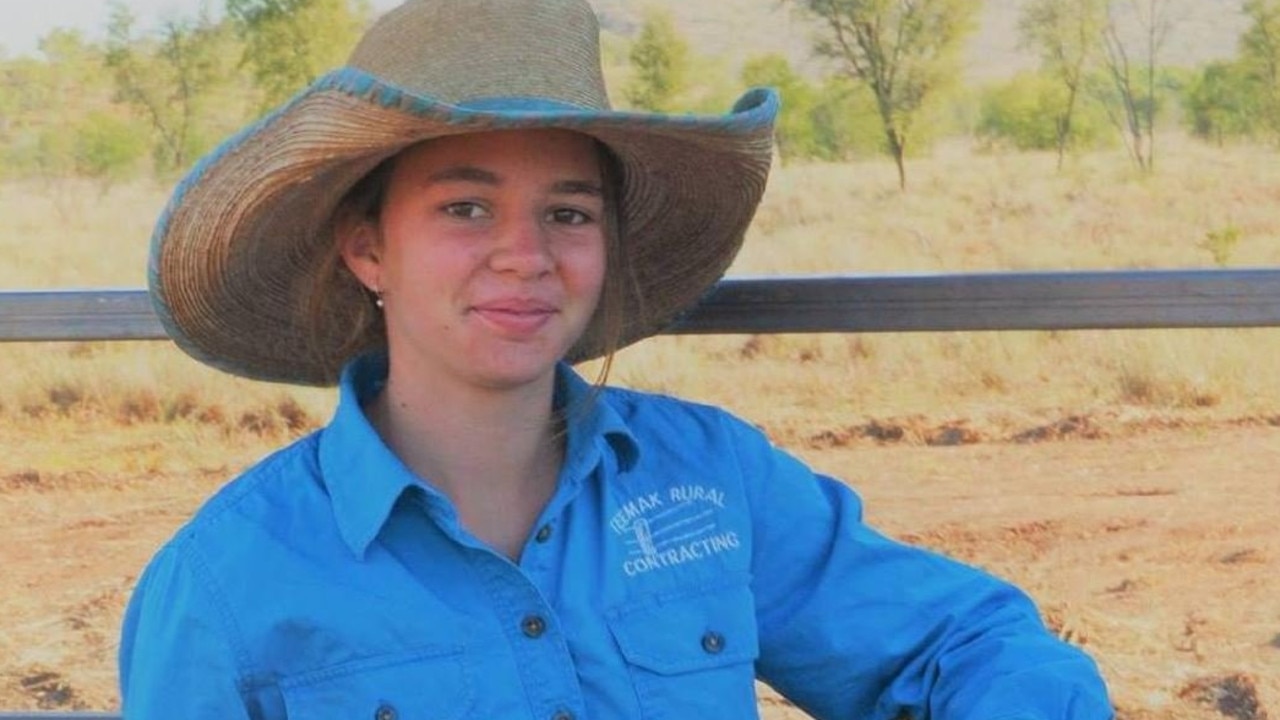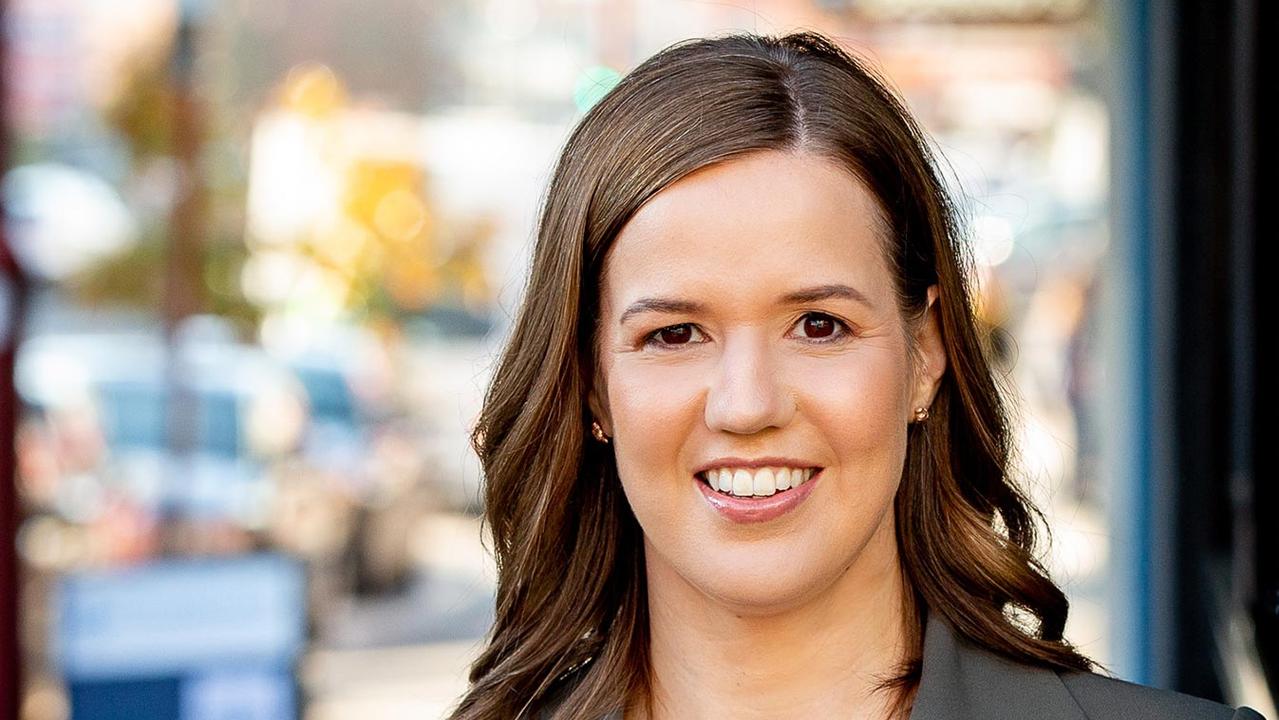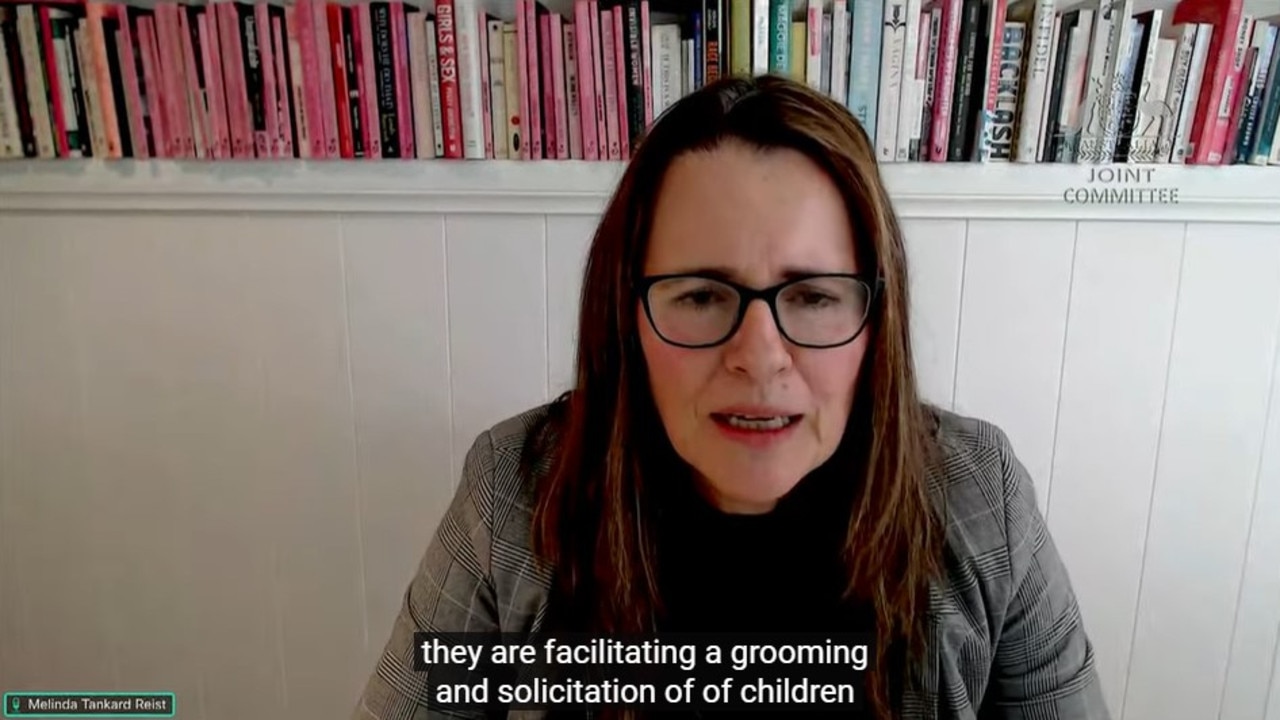Child safety experts dismiss ‘superficial’ social media age limit, call for tough regulation
A tough 16-and-over social media limit could give parents a false sense of security against predators and damaging, exploitative content, a key teen charity says.

Child safety experts have thrown down the gauntlet to the federal government to not create a “superficial” social media age limit but do “the really hard stuff” and regulate the tech companies.
Making social media companies legally required to have a robust 16-and-older requirement would “not touch the sides” of harms inflicted on young people online, tech and social health experts say.
“If we generate an age limit, parents will switch off and say ‘nothing more for me to do here’,” Dolly’s Dream board member Genevieve Fraser told the joint select committee on social media and Australian society hearing on Wednesday.

Chaired by Victorian Labor MP Kate Thwaites, the committee is hearing from tech and gambling experts, media outlets, and health and safety charities.
“The work needs to be the really hard stuff, which is the government regulating the providers,” Ms Fraser said.
“And I know that’s a hard answer and it’s not what people want to hear but changing the age limit will do nothing and it might in fact have the terrible consequence of parents switching off and thinking they’re now protected in a way they aren’t.”
Asked if she wanted the social media age to go to 16, as the government has flagged, Ms Fraser said she wanted regulation from the government on the tech companies.
“I don’t think there’s any safe age for adults or children to be on any of these platforms.
“And I’m on all of them, I’m not Amish … but the bigger issue is the way the platforms operate.”
Earlier in the day, eating disorder experts flagged financial penalties in line with the tech company’s huge revenues as appropriate possible regulation.
Pressed to put an age limit on social media by committee member Andrew Wallace, Ms Fraser said the question was nuanced.
Dolly’s Dream Foundation aims to help regional and remote communities with the effects of cyber-bullying, named in honour of rural schoolgirl Dolly Everett who committed suicide after being bullied.

Putting an age restriction on social media risked harming people in the regions, such as a young person on a remote station, Ms Fraser said.
“If you switch that off there will be kids who are at risk because they’re socially isolated.”
Alannah and Madeline Foundation chief executive Sarah Davies agreed most parents had no idea about the convoluted and omnipotent data the social media companies held and sold.
Until mid-2023, for about $30 anyone could buy all the data on one demographic group, Ms Davies said.
“You could say ‘okay I’d like all the data on 14-year-old girls across the country who have low self esteem issues and who live 50 miles from a regional centre,” she said.
“So you could profile gender, age, geography, but also … their emotional state, their psychological state … and you could target your message directly at them.”
Typically when de-identified data was on-sold to advertisers, Ms Davies said, data brokers were able to re-identify the data set, capturing a comprehensive online footprint of a user.
“They know who we are, where we are, what we’re doing, who our contacts are, what we’re scared of, what we like. It’s actually inconceivable to understand the depth, the breadth of it,” she said.
A “superficial” raising of the social media age would “not touch the sides” of addressing privacy and informed consent for young social media users.
“Parents don’t have a snowball’s chance in hell of keeping their children safe while these recommender systems and algorithms are feeding children, deliberately and with intent, content, contact and compulsion risks.”
‘Parents need help’
Australian parents are overwhelmed and powerless to stop the harmful influences of social media, an eating disorder support expert and parent with lived experience says.
“Parents need help,” Eating Disorders Families Australia executive director Jane Rowan told the committee on Wednesday.
“Government intervention, to set the rules that social media must abide by if they are to operate in Australia, is not only needed – it is essential.
“Why is it that around one-in-five boys and one-in-three girls worldwide are now experiencing disordered eating? Why has the incidence of eating disorders in those aged 10-19 risen by 86 per cent since 2012? These are the questions we must ask.
“How many young lives must be ruined? … This is a national crisis and urgent action is needed.”

Ms Rowan’s daughter was diagnosed with anorexia nervosa at the age of 15 and now considered herself recovered, seven years on.
Instagram fuelled her eating disorder with a “relentless stream of false information about diets and unrealistic body images”, Ms Rowan told the committee.
“She lacked the maturity and skills to discern helpful content from harmful content. As her parent, I was not even aware that she was consuming pro-anorexia and self-harm content.”
Ms Rowan’s daughter got around “strict” device-use rules and parental monitoring of her Instagram account by having multiple accounts.
“Our story is not unique. Eating Disorder Families Australia currently supports over 3000 parents and carers of those with an eating disorder,” she said.
The eating disorder charity wants the government to raise the age limit for social media to 16, and the social media companies to install effective age verification
“As my 15-year-old daughter succinctly states, she would be fine without social media access if it applied to everyone,” Ms Rowan said.
‘Social arson’: Group slams predatory social media
Social media giants do not care about ethics as young people are subject to an onslaught of sexploitation, an Australian campaigner says.
“These companies don’t respond to ethics,” Collective Shout director Melinda Tankard Reist told the inquiry on Wednesday.
“They only care about the bottom line … they don’t care that they’ve moved to encryption, and police are saying they won’t be able to detect upwards of 90 per cent of the child exploitation material that is now being shared.”

Ms Tankard Reist is the director of Collective Shout, an organisation determined to end the objectification of women and the sexualisation of girls.
“These companies don’t even enforce their own terms and conditions,” Ms Tankard Reist said.
“Instagram for example should be forced to change its settings so that men can’t comment on how they would like to rape little girls, which is happening as we speak. These comments are not removed, they are not taken down.”
Trafficking, predation, sexploitation and grooming are prevalent on the “anti-social media” tech platforms which have committed “social arson”, she said.
TikTok promotes whipping, sadism and choking, including choking challenges which have killed people, the campaigner said.
At least five Australian boys have ended their lives due to sextortion scams, after being blackmailed by who they had thought were “hot young women”.
Consensual-non-consent or “rape play” is a popular tag on TikTok, she says.

Thirteen-year-old Australian girls “tell me they are regularly” sent live masturbation videos on Snapchat, Ms Tankard Reist said.
‘Tribute’ videos of men and boys masturbating to specific girls are not taken down off X, she said.
“Their products are not safe for children. Not safe for minors.”
Collective Shout wants a 16-years-of-age limit for social media, and 18 years for porn and gambling sites.
“(Age verification) doesn’t have to be bulletproof to be worthwhile. Children can still get alcohol and cigarettes, but we don’t sell it to them over the counter.”
The social media companies needed to face fines, for hosting exploitative material, which were commensurate with their huge revenues and global reach, Ms Tankard Reist said.
“This is beyond any one country on its own. It’s too big, it’s too monolithic.”
The joint committee is due to present an interim report in mid-August, and its final report in mid-November.






